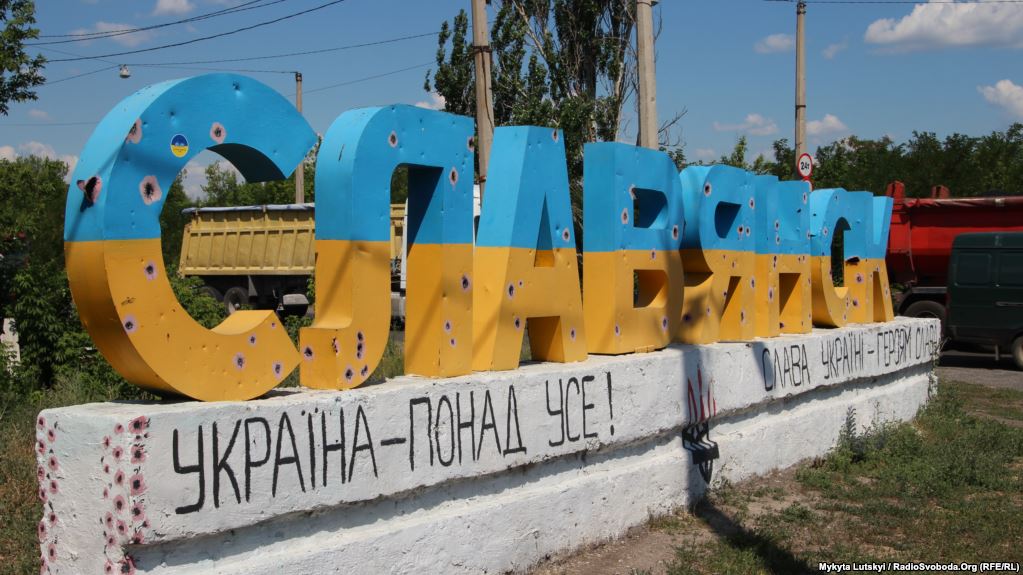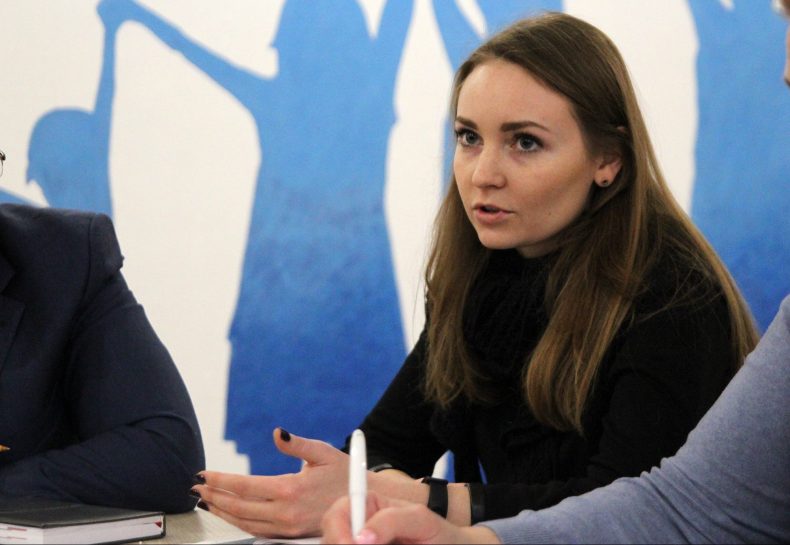Human rights defenders submitted the evidences of Russia’s involvement in Slovyansk occupation to the European Court of Human Rights
12.04.2019
In early April lawyers of the UHHRU and the European Human Rights Advocacy Centre (EHRAC) sent Statement of Facts to the European Court of Human Rights (ECtHR) in cases concerning illegal detention and torture of civilians in Slovyansk in April – July 2014. These statements had been submitted back in 2014 and in 2018 the Court communicated the cases, thus admitting them for examination.
 In April 2014, Russia began its armed aggression at eastern Ukraine in the city of Slovyansk. The city was captured by illegal armed forces led by Russian agent Igor Girkin (Strelkov). That is when our country received the first shocking reports of Ukrainians being detained, tortured and executed without trial. In the spring of 2014 three civilians became victims: Igor Oprya – a student at the time who was on his way home to Krasnyi Lyman, as well as Pavlo Yurov and Denys Gryshchuk – theatrical personalities who stopped in Slovyansk for a couple of hours on a road from Donetsk to Kyiv.
In April 2014, Russia began its armed aggression at eastern Ukraine in the city of Slovyansk. The city was captured by illegal armed forces led by Russian agent Igor Girkin (Strelkov). That is when our country received the first shocking reports of Ukrainians being detained, tortured and executed without trial. In the spring of 2014 three civilians became victims: Igor Oprya – a student at the time who was on his way home to Krasnyi Lyman, as well as Pavlo Yurov and Denys Gryshchuk – theatrical personalities who stopped in Slovyansk for a couple of hours on a road from Donetsk to Kyiv.
All three of them were detained by illegal armed forces who accused them of pro-Ukrainian views and participation in the Revolution of Dignity. Tortured, they were held in the building of Ukraine’s Security Service (SBU) and later in a police department in poor conditions that were degrading to human dignity, they were denied medical care and were subjected to constant psychological pressure and threats of execution. Igor Oprya was also forced to perform work that posed a danger to his life and health.
One of the key issues to be decided by the ECtHR in these cases is whether Russia exercised its jurisdiction over the territory of Slovyansk in April – July 2014.
 “Together with EHRAC lawyers we gathered evidences of Russia’s direct involvement in planning, conducting and controlling of the invasion of Ukraine in the spring of 2014 and the capture of administrative buildings at eastern Ukraine. We also performed a thorough analysis of ECtHR case law on military conflicts and their applicability to Ukraine’s situation. The results, based on the principle of “effective control”, were used in the Statement of Facts that was sent to the ECtHR,” says UHHRU Strategic Litigation Center lawyer Vitaliya Lebid.
“Together with EHRAC lawyers we gathered evidences of Russia’s direct involvement in planning, conducting and controlling of the invasion of Ukraine in the spring of 2014 and the capture of administrative buildings at eastern Ukraine. We also performed a thorough analysis of ECtHR case law on military conflicts and their applicability to Ukraine’s situation. The results, based on the principle of “effective control”, were used in the Statement of Facts that was sent to the ECtHR,” says UHHRU Strategic Litigation Center lawyer Vitaliya Lebid.
For reference: Effective control implies prosecution of a state responsible for violating, either directly or indirectly, international human rights law on the territory of another state by supporting illegal armed forces. In particular, in the understanding of the Council of Europe, a state’s “effective control” over illegal armed forces operating at the territory of another state includes military, political, social, economic and financial components.
If you find an error on our site, please select the incorrect text and press ctrl-enter.